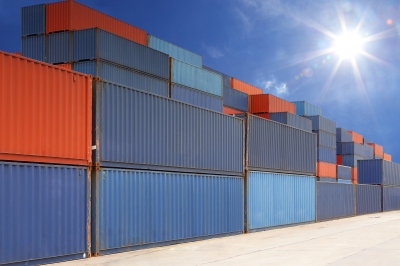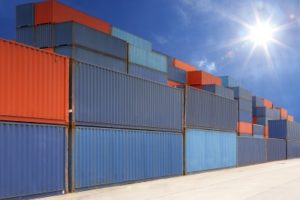Philippine trucking groups and the Association of International Shipping Lines (AISL) have agreed on at least two initial measures to address the long-standing issue involving delays in the return of empty containers to container yards (CYs).
The issue has prompted a threat by truckers to stop accepting and delivering cargoes from four international shipping lines starting April 1.
READ: PH truckers to hold off accepting cargoes from 4 lines due to delays in returning empties
In an interview with PortCalls on March 21, AISL general manager Atty. Maximino Cruz said truckers on March 20 agreed to two measures. The first requires shipping lines to indicate the designated CY, regardless of its location, in the container release order.
The second stops the levy of the detention charge if the designated CY refuses to accept an empty container that arrived on schedule.
The measures were reached at the AISL special general membership meeting (GMM) on March 19 attended by representatives of port operators, CY operators, and the Chamber of Customs Brokers, Inc.
The special GMM was a follow-up on initial talks held between AISL and trucking groups where the latter had signified their intent to go on a mass action to protest delays in the empties return.
The protesting trucking groups are the Haulers and Truckers Association in the Waterfront, Inc. (HATAW), Aduana Business Club, Inc. (ABCI), and Inland Haulers and Truckers Association (INHTA). They are being supported by the Professional Customs Brokers Association of the Philippines (PCBAPI).
In an announcement early this month, the trucking groups identified TS Lines, CMA CGM/APL, Wan Hai Lines, and Hyundai as “the most problematic with the planning of their equipment.”
Two measures
Cruz said shipping lines indicating the designated CY on the container release order resolves the problem of truckers contacting lines to ask where trucks should return the empties.
Part of the agreeent is for shipping lines to indicate a timeline for the return of the container since truckers may take longer returning the empty, and their slot in the CY may be occupied by the time they get there, Cruz said.
It was also agreed that the CY should accept the empty container without delay, as long as it arrives on the assigned timeline indicated by the shipping line.
Cruz said trucking groups have indicated they do not mind how far away the CY is, as long as the empty container is readily accepted.
As for the second agreement stopping the detention charge if the container is refused by the CY, Cruz said it was agreed that truckers will draw up the mechanism and guidelines to prove refusal of the empty container by the CY.
Cruz on March 23 said AISL and truckers are already reviewing such guidelines.
MOA signing planned
Cruz said a memorandum of agreement between AISL and truckers will be signed to implement the measures.
He admitted the two measures will only address immediate concerns, noting not all issues can be resolved in one sitting.
Other issues, such as those on penalties in case a shipping line or CY operator does not follow the agreements, will be discussed in future meetings.
Cruz assured that the more than 30 member AISL lines will strictly follow the agreements once finalized
The lines will “have to abide to the agreement,” he added.
He noted a quorum was reached at the March 19 AISL meeting, and that the decision of the body “binds the others.”
He vowed, “I will make sure that those two agreements are followed.”
But aside from hewing to the agreements, Cruz said the four identified shipping lines have already “acted promptly” to address issues raised against them by the truckers.
No clear decision on April 1 protest
It is not yet clear if HATAW, ABCI, and INHTA will continue with their April 1 mass action. In a phone interview with PortCalls on March 21, ABCI president Maria Zapata said she has yet to consult with the other truckers as they are still awaiting the MOA signing.
Other trucking groups such as Alliance of Concerned Truck Owners and Operators (ACTOO) and Confederation of Truckers Association of the Philippines will not take part in the April 1 protest.
ACTOO president Ricky Papa, in an interview with PortCalls on March 21, said they are already discussing with AISL and some of its member shipping lines solutions to the empty returns problem, noting that some carriers have in fact already addressed a few concerns.
Root of the problem
Cruz explained that the real problem is the lack of space and infrastructure to accommodate the empty containers, which in turn is a result of the country’s trade imbalance where there are three containers coming into the country for every one box going out. This means that at any given time shipping lines have to deal with two more empty containers that need to be repositioned within their global network.
“But looking at the long term, we realize that the underlying problem lies in the infrastructural aspect of putting up facilities for the return of empty containers. With the growing volume of trade and compounded by the increasing imbalance between imports and exports, we believe that… a partnership between the public and private sectors to address the problem and produce a long-term solution (is needed),” Cruz said.
He noted that Customs Commissioner Isidro Lapeña, when briefed on the issue in a meeting with truckers and AISL on March 20, “acknowledged there is indeed a problem on space and in fact, instructed his staff to look for available CY depots even outside of Metro Manila.”
Cruz added that the Department of Transportation has also taken note of the issue and “will do its part to assist in looking for more CY space.”
Asked about the status of GoFast, a web-based system that AISL introduced in 2015 to address the issue of returning empty containers in Metro Manila, Cruz said the system is still not fully in place.
He noted that GoFast, which is AISL’s “aspiration in order to automate everything,” could help address issues with the return of empty containers.
Members of AISL are slowly linking to the system, with 23 lines connected in varying phases as of September last year.
Meanwhile, Cruz said stakeholders unable to reach shipping lines can directly contact the AISL office, which will then coordinate with the lines. – Roumina Pablo
Image courtesy of sailom at FreeDigitalPhotos.net






